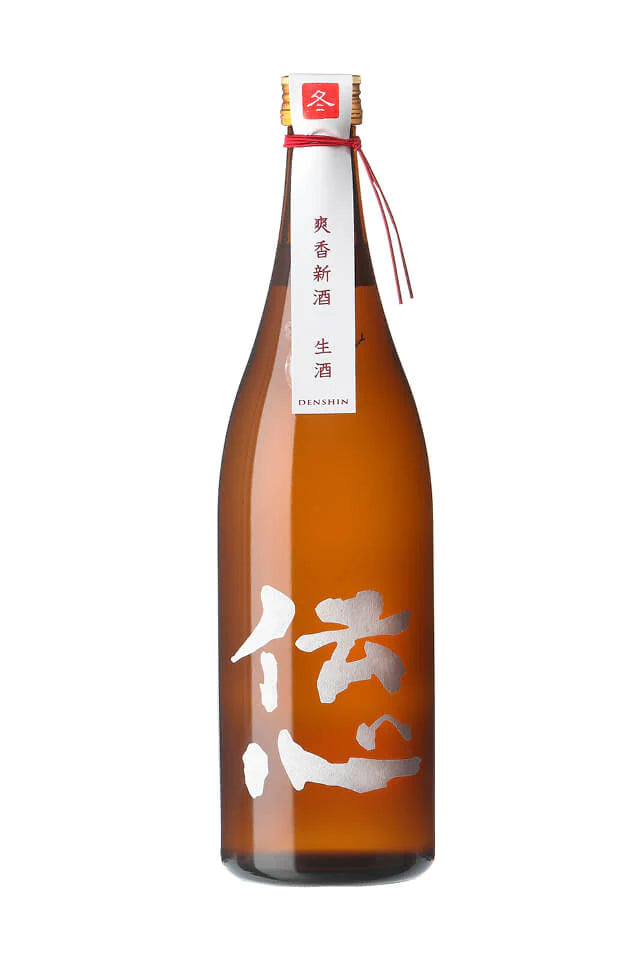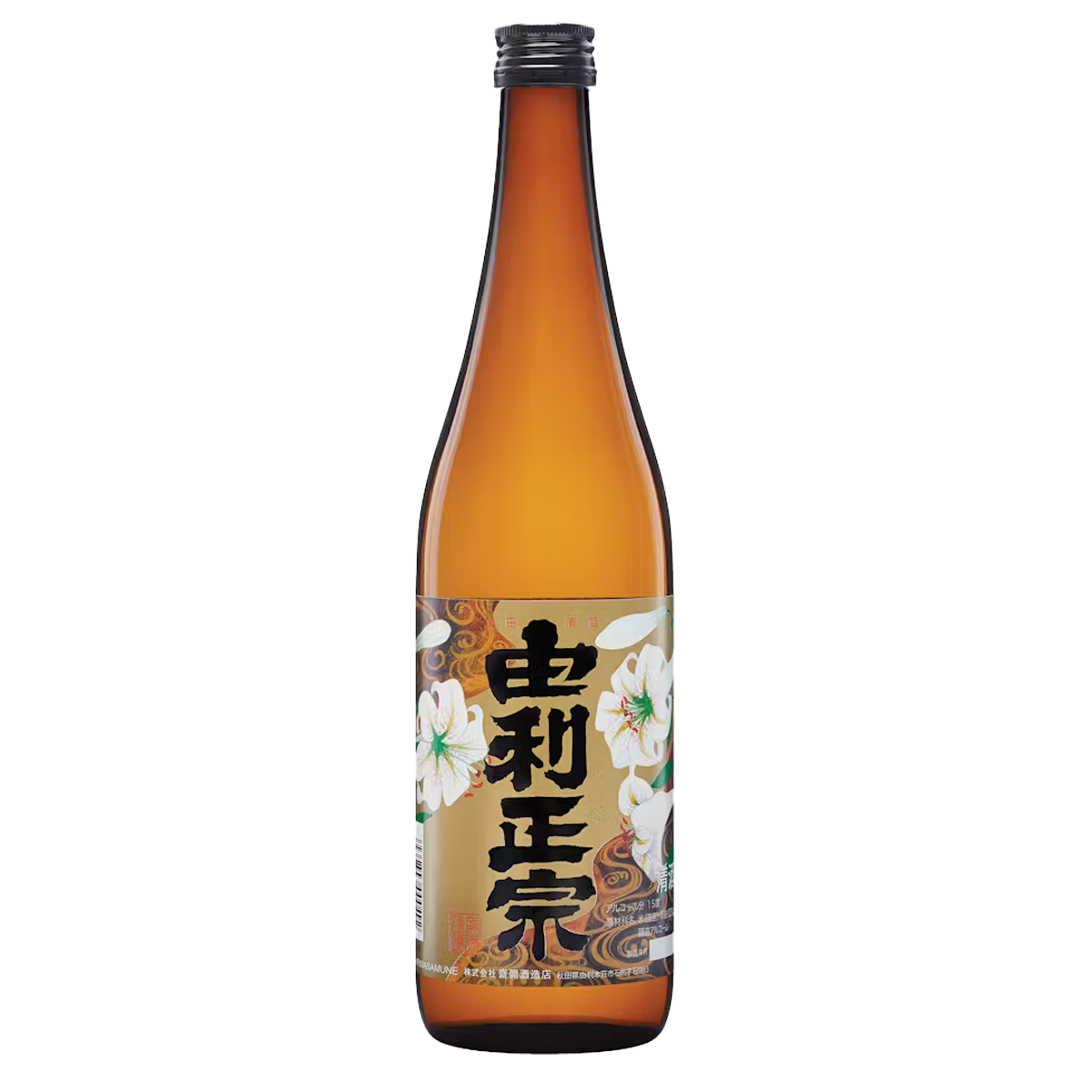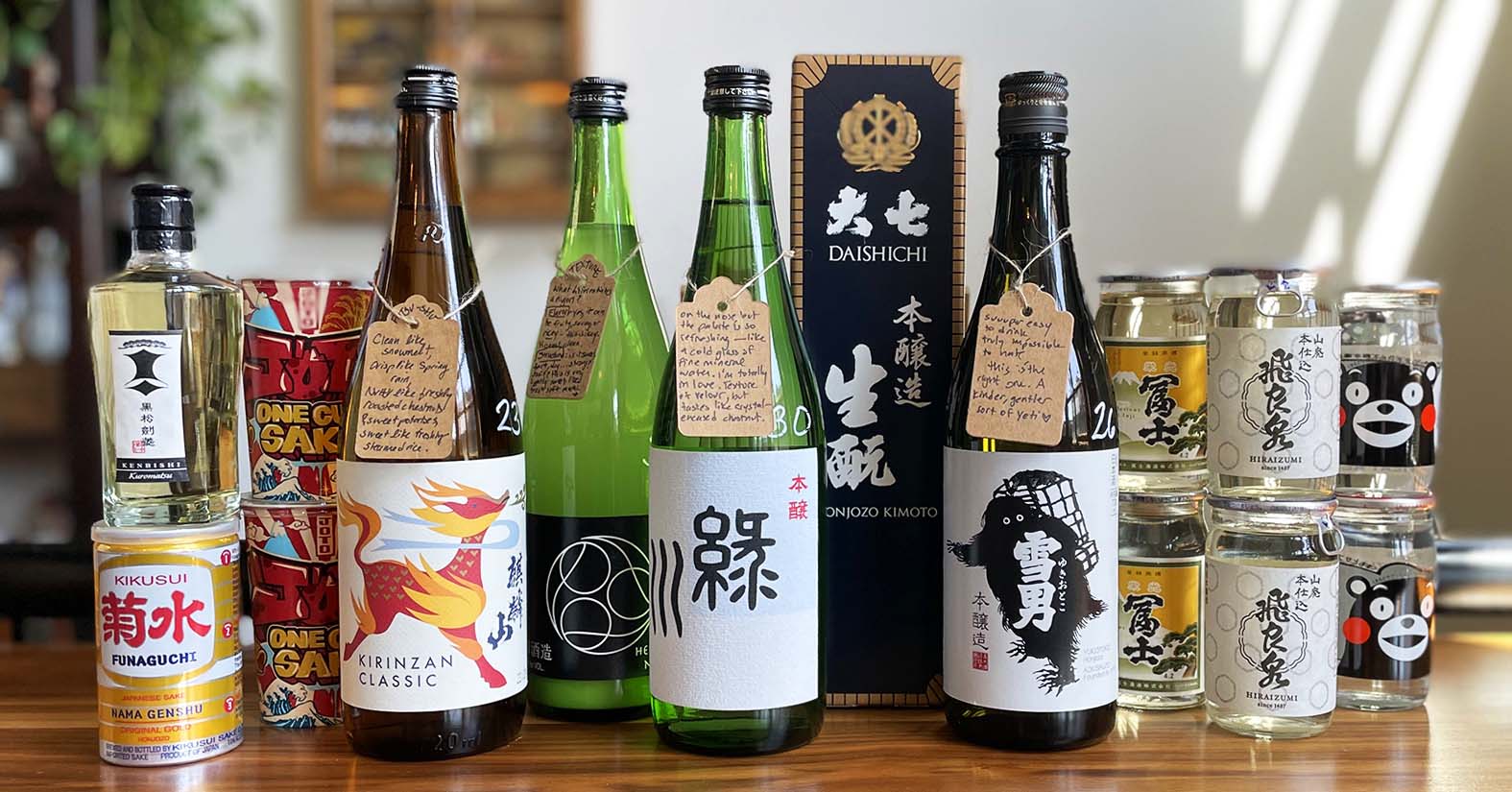
Denshin Honjozo Shiboritate Namazake "Fuyu"
- In stock, ready to ship
This sake has very refreshing aroma and juicy character, with notes of white pepper, ripe persimmon, meringue, brazil nut, dates, pear, cream of wheat, bitter apple, and soft forest floor. It makes my mouth water-- delivering a crisp, smooth, bright and slightly effervescent taste. The overall impression is of brightness, clarity and gentle astringency.
Ippongi Kubohonten, 一本義久保本店
Established 1902
Location: Katsuyama, Fukui
Grade: Tokubetsu Honjozo Namazake
Rice: Local Gohyakumangoku
Polish: 65%
ABV: 18%
Recommended serving temperature: 10-15°C/50-60°F
In early October, right after the rice harvest, Ippongi Shuzo starts brewing sake for the year. The first tank they brew is Denshin Tsuchi-- a pasteurized sake available year round. At the end of October, the first fermentation tank will be ready to be pressed. Denshin Fuyu--winter-- is the unpasteurized nouveau sake set aside from this very first tank. It is a seasonal sake, bottled right after being pressed (“Shiboritate”) and shipped raw under refrigeration-- a truly live product!
With the honjozo brewing method, distilled alcohol is added at the end of fermentation but before pressing. This is the only honjozo Denshin makes and is a reflection of history as well as technical skill. Their website reads:
As we can find in the old book of sake brewing techniques called “DOUMOU SHUZOUKI”, written in the early Edo period (1687), Japanese knew that adding shochu (Japanese traditional single distillation alcoholic beverage) to moromi (sake mash) could influence in stabilizing the quality of sake, lightening and harmonizing the flavor and so on. It shows that Japanese has a long history of making fortified type sake.
Currently, about 75% of sake produced in Japan is fortified type. In general, the alcohol used to add to sake is the pure alcohol made from molasses, which is mostly imported from Brazil and distilled it to 95% of alcohol/vol. with using a continuous column still.
With that being said, our concept of Denshin items is to be the sake made from all ingredients from Fukui prefecture. Therefore, the distilled alcohol we add for Denshin Tsuchi and Denshin Fuyu has to be made by ourselves. We produce rice shochu (from rice made in Fukui, using single pot still) to add to those 2 items. The technique using shochu as adding alcohol is called “Hashira-shochu preparation”, which was used in the Edo period.
We will be grateful if you can discover the attractiveness of fortified sake through its light and smooth texture that comes from this fortifying technique, which is a different direction from junmai type.
A very savory namazake, Fuyu is one to sit with and sip on. Last year I had great success pairing with burdock and carrot sautee (kimpira gobo) as well as carrot and shiitake mushroom stuffed bao seasoned with oyster sauce. Tsukudani shishamo (braised mirin and shoyu smelt) or Pan’s Mushroom Jerky (local to PDX!) are about as perfect a pair as you can find. Think sweet-savory, mushroomy, a little funky-- Taiwanese, country Japanese, Shandong and Cantonese cuisine are a great start. Serve this one from the freezer if it’s tasting a little sweet.



